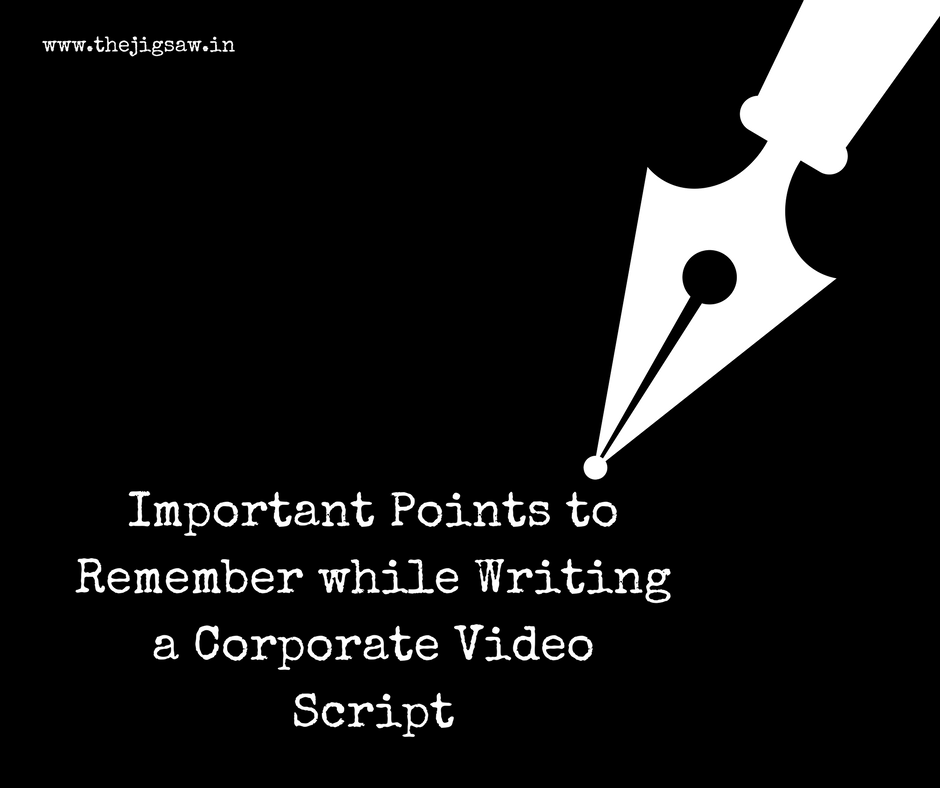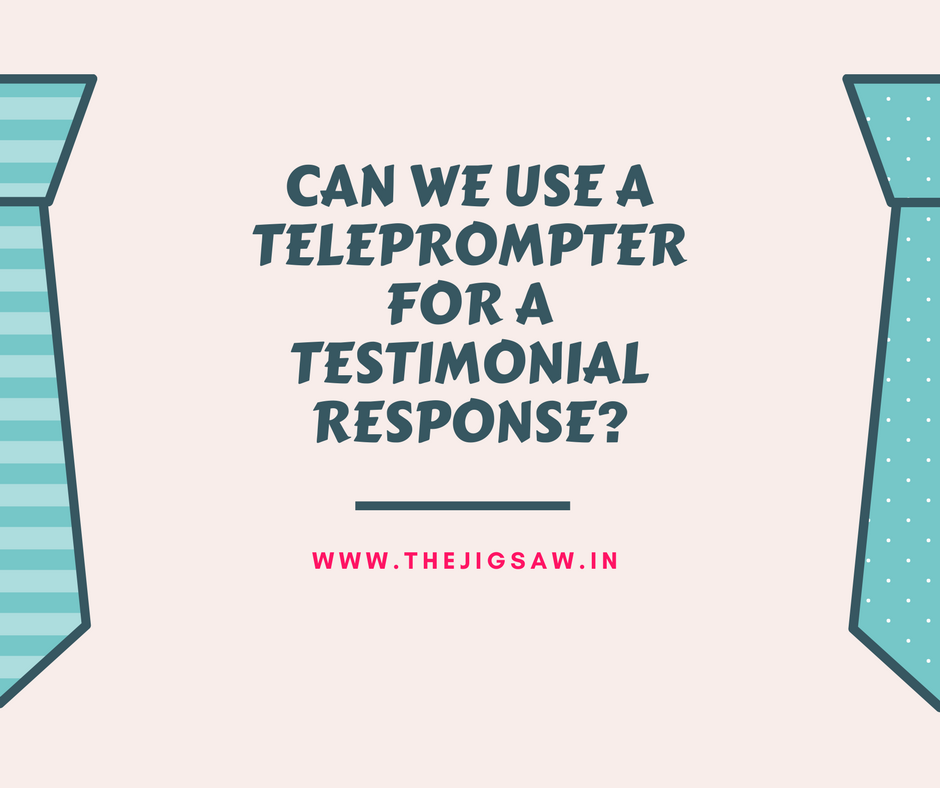The importance of a video in today’s world of gadgets and technology cannot be underestimated from any angle. Be it for Logan Paul’s new blog or Apple’s new iPhone X, a video is always needed to let the anonymous audience know what you want to say. But, a video without a script is like a human being without a spine; limp, confused, and messy. A proper script is what makes or breaks a video, and can separate your video from other quintessential videos out there.
Video marketing is becoming more and more important to the success of a business every day. This is because it is such an essential part of a successful marketing strategy and helps a business promote their brand, get their important message across, and improve their relations with clients and others. So what makes up a great video script that will grab their attention and keep it. If you’re creating a corporate film then you’re going to need a video script. (There are exceptions; a filmed testimonial shouldn’t be scripted, and when shooting certain events such a thing might be impractical. But most of the time a script is a must-have.) With a well-written script you can make sure your video content gets across your message and grabs hold of your audience, whether it’s a promotional brand film or a training video for internal use. So… how do you write a script that gives your video such structure and focus? To answer that, here I’ll talk about important points to remember while writing a corporate video script.
Ten Seconds till Absolute Destruction
The attention span of the average adult is around two minutes, according to many sources. This has become somewhat of an industry standard, due to YouTube and the fact that people are watching video content more from their mobile devices than ever before, rather than from their desktops.
In this process of looking for content, people are clicking on video links at a fast rate, and deciding what they think is worth watching. This means you only have around 10-15 seconds to grab their attention. So how do you do it? Here are a few ways which have proven successful for many businesses:
-
Use content that audiences connect to emotionally – t is shown in analytics and research that people share videos they emotionally connect to at a much higher rate than those which simply tell them facts.
-
Make it engaging – Just like good blogging and content writing, the winning video scripts should engage them, give them something they can relate to, and move them some way. It doesn’t have to always be an emotional experience. But it should be something that will motivate them to keep watching. Remember the goal is to get people to watch your whole message, especially since you will likely have a “call to action” at the end of the video.
Writing a Corporate Video Script – Important Tips
Now, getting to the matter at hand. If you’re looking to write a corporate video script, these are the important points you need to remember: –
1) First, write a video brief.
Wait, what?
Yes, before you can start writing a video script you first need to knuckle down and finish your video brief. This is the document that helps you set out your objectives, your audience, and your message (among other things) — basically all the planning you need to do before creating video.
Your brief will serve as solid grounding when writing your script. It will give you clarity on: –
-
Why you’re making your video,
-
What it needs to achieve,
-
Who you’re speaking to,
-
What you want them to do after watching, and
-
What the message of your video is.
So get to it, get clear on the purpose and direction of your video, and then you can carry on with scripting.
2) Convert your message into a story.
For any piece of video content you create, you’ll have one or several core messages you want to communicate (your video brief will help you identify these).
The trick is translating these core messages into a simple story for your script to follow. Everything you decide will depend on the objective your video needs to achieve, and what your audience finds valuable and engaging. It’s not just about what you want to say to your audience; it’s also about saying it in a way that resonates with them.
Your story doesn’t need to be epic or complicated. All it actually needs to be is a logical progression from one point to another, where the start is things as they currently are and the end is things as you want them to be. A good story should grab hold of your audience and tell your message in such an engaging way that it guides them to a Call-to-Action for the desired action.
3) Speak in a way your audience will understand.
When writing your script, always talk in your audience’s language rather than your own.
Try to get outside of your own head. Remember: your video script needs to appeal to your target audience, not you, your boss or your stakeholders. Generally, you should keep the tone simple and conversational. The only excuse for breaking this rule is if you’re a bank or a hospital (and even then a relaxed tone can work wonders). It doesn’t matter if you’re B2C or B2B, internal or external — your audience wants to hear you speaking like a human, not a robot. That means cutting jargon, buzzwords and meaningless waffle. It means speaking on a level that your audience will understand, with concepts and vocabulary they’re already familiar with.
Your script should be in line with your brand voice, but never to the detriment of viewers. If you can include real words and phrases that your audience themselves use, you’re well on your way to a great video script.
4) Keep your script precise, short, and sweet.
When it comes to scriptwriting, less is always more. Say what you need to say and keep it as short and succinct as possible. We generally try to keep videos to between 2-3 minutes.
(This isn’t to say every video you make will be super-short. A good training video can easily be 30 minutes long. But none of that time should be wasted, and every part of the script should be concise, precise and necessary to the video as a whole.)
In a great script every word earns its place. The shorter your video, the more punch each sentence, phrase and word must have.
Here are our top tips for keeping your script as lean and impactful as possible:-
-
Say something unique, not what everyone else says
-
Use simple, everyday language over unnecessarily complicated words
-
Cut the flab, fluff and superfluous information
-
Never repeat yourself unless it’s for dramatic effect
-
Be prepared to make sacrifices (what’s really most important to communicate?)
5) Do various script readings.
Once you’ve got a workable draft of your video script, you should start reading it out. Until you’ve done readings, you won’t be able to tell how your script sounds when spoken aloud.
You want your video script to flow smoothly from line to line, rather than sounding stilted. If you can read the script naturally, without sounding forced, that’s a good sign.
Pay attention to: –
- How long it takes to read your script,
- Where inflection and emphasis falls, and
- Any awkward phrases that get stuck in the mouth.
Your readings should bring up parts of the script that need to be changed before it’s ready to go. Keep editing until you can read all the way through without.



